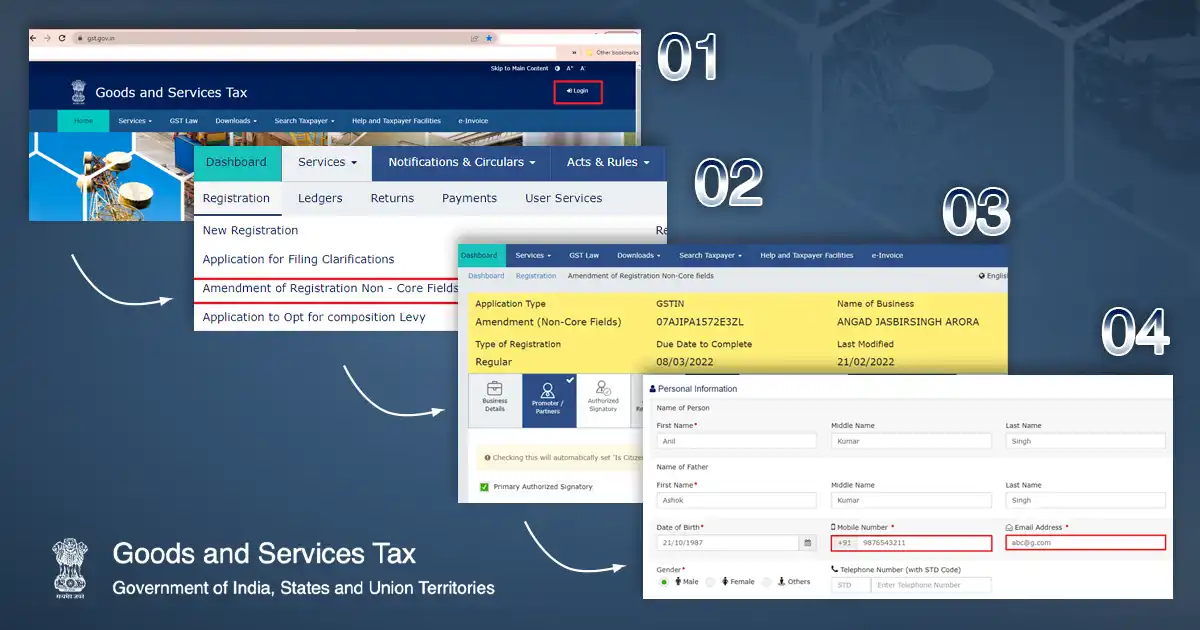
Tax in Partnership Firms is a critical aspect of financial planning and regulatory compliance that every business partner must understand. Unlike sole proprietorships or corporations, partnership firms follow a unique taxation structure governed by income tax rules for firms, which define how income is assessed, taxed, and reported. Proper tax planning helps businesses optimize tax liabilities, maximize deductions, and ensure smooth operations without legal complications. A thorough understanding of the taxation of partnership firm regulations can significantly contribute to financial stability and long-term business growth.
The partnership firm tax rate is determined based on the firm’s total income and applicable deductions under the Income Tax Act. Unlike individuals, partnership firms are taxed at a fixed rate, and partners’ incomes are subject to separate taxation rules. Additionally, businesses must comply with GST on partnership firms, which governs the indirect tax liabilities on goods and services provided by the firm. By understanding these tax obligations, firms can ensure compliance, avoid penalties, and take full advantage of eligible exemptions.
One of the essential components of tax in partnership firms is identifying eligible tax deductions for partnership firms to minimize overall tax liability. These deductions include allowable expenses such as salaries paid to partners, rent, depreciation, and business-related expenses. Claiming the right deductions can significantly reduce taxable income, improving the firm’s financial efficiency. However, failure to adhere to the proper partnership firm taxation process can lead to tax disputes and additional financial burdens.
Apart from direct taxation, the tax on partnership firms also involves compliance with indirect tax obligations, including GST filings and payment deadlines. The income tax on partnership firm regulations outlines the documentation, filing procedures, and audit requirements that businesses must adhere to for smooth tax compliance. A step-by-step approach to understanding the partnership firm taxation process ensures that businesses meet all statutory requirements, avoiding unnecessary fines and scrutiny from tax authorities.
In this blog, we will provide a detailed explanation of tax in partnership firms, including how tax calculations are performed, applicable partnership firm tax rates, essential income tax rules for firms, and key tax deductions for partnership firms. We will also walk through the partnership firm taxation process, covering GST implications and compliance strategies. By gaining a comprehensive understanding of these aspects, partners can make informed decisions, optimize their tax liabilities, and maintain smooth financial operations.
How is a Partnership Firm Taxed in India?
A partnership firm in India is considered a separate legal entity for taxation purposes. Unlike proprietorships, where the owner and the business are taxed as a single entity, tax in a partnership firm follows distinct rules under the income tax rules for firms, ensuring proper compliance.
The firm itself is liable to pay income tax on partnership firm profits, while partners are taxed on their shares of income after taxation at the firm level. Understanding this partnership firm taxation process helps firms plan their finances efficiently, minimize tax liabilities, and maintain smooth financial operations.
Applicable Tax Rates for Partnership Firms
The partnership firm tax rate applicable in India is as follows:
- Tax in partnership firms is levied at a flat rate of 30% on total income.
- A surcharge of 12% is applicable if total income exceeds Rs. 1 crore.
- An additional 4% cess is levied on the total tax liability, including the surcharge.
For example, if a partnership firm earns Rs. 50 lakhs in profit, it will be taxed at 30%, plus the applicable cess.
Tax Deductions and Exemptions Available to Partnership Firms
A partnership firm can claim various tax deductions for partnership firms to reduce taxable income:
- Salaries, bonuses, and commissions paid to working partners can be deducted as an expense.
- Interest on capital contributions, subject to a maximum of 12% per annum, is deductible.
- Business expenses, including rent, utilities, office expenses, and GST on partnership firms, can be deducted.
- If the firm is registered under GST, input tax credit can be claimed on GST paid for business expenses.
By leveraging these deductions, firms can reduce their income tax on partnership firm and optimize tax liabilities.
Step-by-Step Guide to Calculating Tax in a Partnership Firm
- Calculate the total revenue earned during the financial year.
- Deduct business expenses, remuneration to partners, interest on capital, and other eligible deductions.
- Apply the 30% partnership firm tax rate on the net taxable income.
- If income exceeds Rs. 1 crore, apply a 12% surcharge.
- Add 4% health and education cess to the total tax amount.
- The total sum represents the final tax in partnership firms.
Example Calculation:
- Total Income: Rs. 50 lakhs
- Deductions: Rs. 10 lakhs
- Taxable Income: Rs. 40 lakhs
- Tax @ 30% = Rs. 12 lakhs
- Cess @ 4% = Rs. 48,000
- Total Tax Payable = Rs. 12,48,000
How to File Income Tax Returns for a Partnership Firm?
Filing income tax on a partnership firm requires following these steps:
- Ensure the firm has a valid Permanent Account Number (PAN).
- Maintain proper financial records of income, expenses, and tax deductions for partnership firms.
- File Form ITR-5, designated for tax in partnership firms.
- If turnover exceeds Rs. 1 crore (or Rs. 10 crore for digital transactions), an audit by a Chartered Accountant (CA) is mandatory.
- Submit the tax return via the Income Tax Department’s e-filing portal before the due date (usually July 31st).
Common Tax Compliance Mistakes and How to Avoid Them
- Inaccurate financial records can lead to incorrect tax filing and penalties.
- Delayed GST registration can result in fines; ensure timely GST on partnership firms’ compliance.
- Excessive remuneration beyond prescribed limits can be disallowed.
- Late payment of taxes results in interest and penalties.
- If required, ensure a tax audit is conducted by a qualified CA to remain compliant.
Avoiding these mistakes helps firms streamline the partnership firm taxation process and prevent legal issues.
Ending Note
Understanding tax in partnership firms is crucial for ensuring smooth financial operations, legal compliance, and long-term business sustainability. With a fixed partnership firm tax rate, firms must adhere to Income tax rules for firms to avoid legal complications and optimize tax benefits. Accurate financial record-keeping, timely return filings, and leveraging available tax deductions for partnership firms are key strategies to minimize tax liabilities while maintaining regulatory compliance. The partnership firm taxation process requires businesses to stay updated on income tax on partnership firm, including provisions for GST applicability. Proper planning and adherence to tax norms can help firms maximize their profits while avoiding penalties.
Businesses must also be aware of GST on partnership firms and ensure their compliance with evolving tax regulations. Staying informed about the latest changes in tax on partnership firm and implementing effective tax-saving strategies can lead to significant financial benefits. Consulting tax professionals can further streamline the taxation of partnership firm, allowing businesses to focus on growth rather than navigating complex tax laws. Ensuring compliance with Income tax on partnership firm and implementing tax-efficient practices will not only improve cash flow but also enhance the overall financial stability of the firm.
Ready to get started? Partner with RegisterKaro for expert guidance on tax in partnership firms. From managing partnership firm tax rate compliance to assisting with Income tax rules for firms, our team ensures seamless tax planning, filing, and advisory services.




